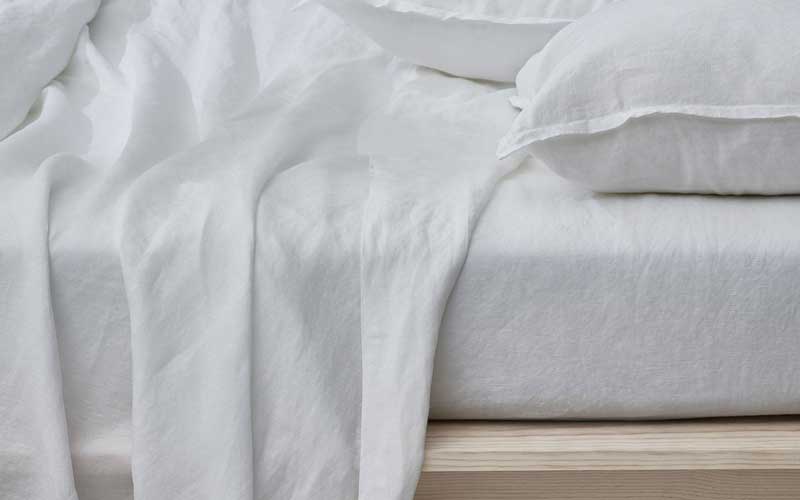Adequate sleep affects everything from your blood pressure to your appetite. Quality rest provides a foundation for building your well-being, and a high-quality mattress can help you get the eight hours of sleep you need. Here at LightSleeper, we consider beds as an investment that can further improve your sleep habits.
That’s why choosing the right one can be a challenging task for most. Many questions can occur, such as: What type of mattress do I need? How long should it last? What’s the average price? And how can you identify one that will last longer than a few years?
If you are looking for a long term solution for your needed rest, opting for a memory foam bed is the way to go. This type of material is durable and long-lasting, depending on its foam layers, density, firmness, and thickness. When armed with the right information, you can determine roughly how long a specific model will last, ensuring you’re making a worthwhile investment.
That’s why in today’s article, we discuss how long do some of the best memory foam mattresses last and what can you do to prolong their life.
How long do memory foam mattresses last?

Memory foam is polyurethane foam made with chemical additives that give it viscoelastic properties. Most memory foams are made with petrochemicals to provide the signature contouring feel. Still, some brands replace portions of the petrochemicals that normally make memory foam with plant-based oils, which results in a more eco-friendly option.
This material type stretches and compresses under heat and pressure in order to mould around the object pressing into its surface. That’s what causes it to conform and mould itself to your body’s curves and offer the popular hugging sensation.
High-quality memory foam can last up to ten years, but the recommended time for a change is between 7 to 8 years. Usually, that’s when the mattress will start sagging and have bumps and lumps, leading to problems sleeping and body aches.
This type of bed has a longer lifespan than pretty much every other kind. A memory foam mattress can last longer if it’s thicker and denser.
The lifespan of a mattress also depends on the stress that was put on it. What we mean by that is the weight of the individual that slept on it and if it was shared with a partner. In general, if you put more weight on your bed or don’t tend to it, it will be more susceptible to rapid wear and tear.
When you’re choosing a mattress, make sure the bed base/ frame you have is suitable for it so that you don’t damage it or heighten the risk of premature damage. Plus, you don’t want your warranty voided for improper use. Opt for quality materials and take care of your belongings to directly contribute to a longer life for your bed and other bedding products.

How to prolong the life of your memory foam mattress?
When answering ‘how long do memory foam mattresses last?’ you must consider the care element. You can think of memory foam beds as a modern new car with all the bells and whistles you can think of. If you take it for frequent tune-ups and keep it clean, you’ll get plenty of mileage out of it. But if you don’t properly maintain it, you may be parting ways sooner than you intended.
The same goes for a mattress and anything else, really. How you treat your bed can ensure whether you enjoy many long, dreamy years or not. Here is what you can do to prolong its lifespan:
- Rotating it – mattress rotation helps distribute your body weight evenly across the entire surface, which helps prevent sagging and lumps from forming. You should rotate it every two to six months (180 degrees).
- Getting a mattress protector – a quality mattress protector is a very beneficial purchase, as it will protect your new bed. Your mattress encasement will prevent stains, dirt, dust mites, and bacteria buildup. Many mattress manufacturers might void your warranty if you spill something on accident, and a mattress protector will not only prolong its life but also protect it.
- Washing your bedding – a mattress is only as clean as the bedding you use on top of it. By regularly washing your sheets, pillowcases, blankets, duvets and mattress cover, you will keep your bed fresh at all times.
- Using a bed frame – your mattress supports your body while you’re sleeping but what’s supporting it? That’s where your choice of a strong bed frame can come in and save the day by preventing sagging, lumps, and bumps in the long term.
- Airing it out – striping your bedding, turning on your fan (if you have one), and opening your windows to give your mattress a few hours to air out is crucial for its life expectancy. Excess moisture can lead to mould and bacteria, which can be harmful in the long run.
Bottom line
A high-quality memory foam mattress will usually last between 7 to 10 years when properly maintained. However, if you purchase a low-quality memory foam bed or neglect to care for it (not cleaning it or failing to rotate it), your investment won’t last as long as it should.
We hope we were able to answer the how and why when it comes down to ‘How long do memory foam mattresses last?’ and now it’s our turn to hear from you if any questions regarding the subject were left unanswered. If you want to share some information, we would gladly hear about it in the comments below.

